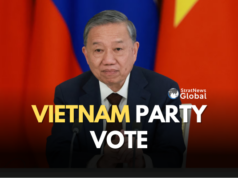The institution of the Dalai Lama will continue: that statement from Dharmshala, from the seat of the Dalai Lama itself, has confined to the dustbin all doubts regarding the future of the most venerated of Tibetan institutions.
In this chat on The Gist, Jayadeva Ranade of the Centre for China Analysis & Strategy, says His Holiness has set the ball rolling, all the shadow boxing and discussions by Beijing and the Tibetans about whether the Dalai Lama’s succession will be by reincarnation or otherwise, have been set at rest.
“The Dalai Lama has made it clear that the successor to the 14th Dalai Lama will not be reincarnated under an authoritarian regime. So to that extent the battle lines are drawn, we have to wait and see what could happen,” Ranade said.
Before his passing, His Holiness would have given certain indications to his people or the search party, as to which direction to go find the successor.
“Their first stop is normally a holy lake where they try and look for reflections, and when they find the little boy they show him some belongings of the Dalai Lama … and if he identifies them correctly .. or if they ask questions, if he gives the right signal, they identify him as the reincarnate and bring him back.”
By declaring that his successor will not be born under an authoritarian regime, the Tibetan spiritual leader is depriving Beijing of certain methodologies they would use, even preempting them from going to various places.
Has the Dalai Lama left things too late? Could he not have made the announcement earlier?
“If something sudden happens then it is a problem,” Ranade admits, “But he would have worked out what to do with some trusted monks given the responsibility for this task.”
If the future Dalai Lama is born in India, that would be huge although not the first time. The sixth Dalai Lama, Tsangyang Gyatso, was born in Tawang in the 17th century, a time when the town was not part of India.
Tune in for more in this conversation with Jayadeva Ranade of the Centre for China Analysis & Strategy
Thirty eight years in journalism, widely travelled, history buff with a preference for Old Monk Rum. Current interest/focus spans China, Technology and Trade. Recent reads: Steven Colls Directorate S and Alexander Frater's Chasing the Monsoon. Netflix/Prime video junkie. Loves animal videos on Facebook. Reluctant tweeter.




